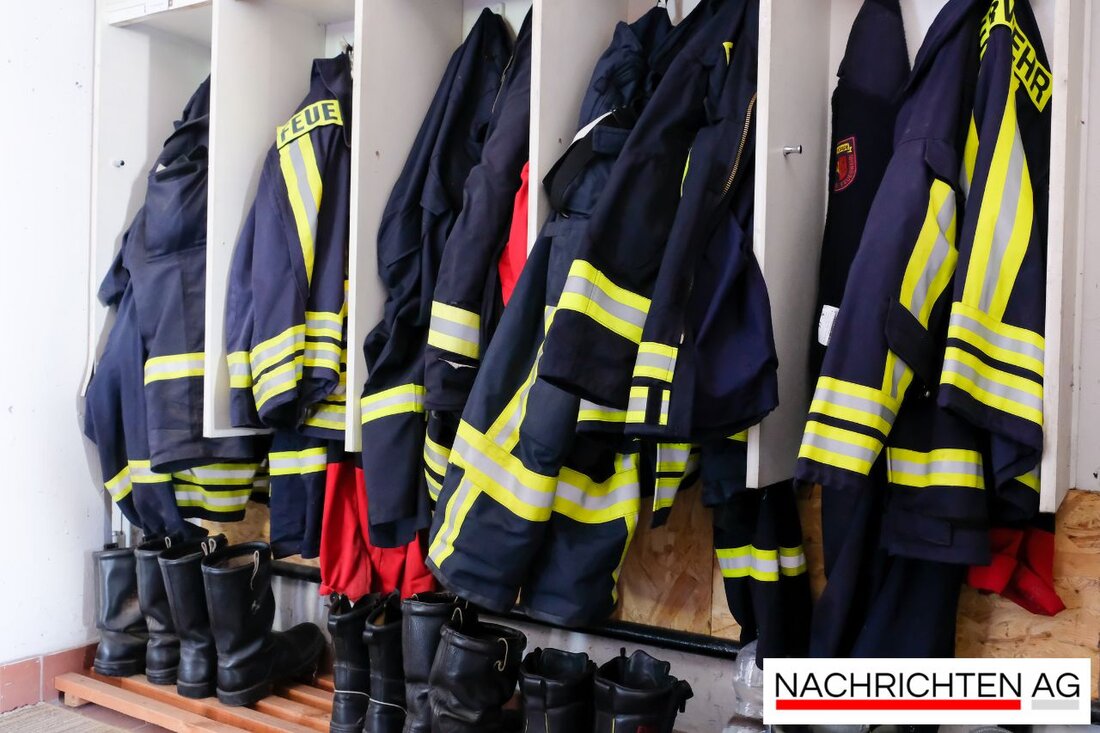Storm chaos in Thuringia: streets under water, fire brigades in continuous use!
Storm chaos in Thuringia: streets under water, fire brigades in continuous use!
Last Sunday, Thuringia experienced a dramatic change in weather: violent thunderstorms and heavy rainfall drew over many parts of the federal state and left devastation. The sewage system was overwhelmed in many places, which led to floods. In Bad Berka, a district of Weimar, streets such as the Tiefengrubener Straße were flooded. Here gravel piled up up to half a meter, and a street was even washed out. In Kranichfeld, some streets stood up to 30 centimeters under water after Gullys clogged through alluvial goods. Report by MDR Several roads had to be fully closed.Not only Bad Berka and Kranichfeld were affected - the storms also caused numerous operations by the fire brigade and the police in other regions of Thuringia. Storm gusts and heavy rain led to blocked roads and several traffic accidents, with most of most people went lightly. In the Unstrut-Hainich-Kreis, for example, the federal road 247 was fully blocked by Grossengottern for around three hours due to flooding. The German Weather Service (DWD) had already warned of the severe thunderstorms that started on Saturday evening and gained intensity in the following hours, such as Tag24 reported.
The challenge of climate change
These extreme weather events are not only a temporary phenomenon, but are also related to the long -term changes in our climate. According to a study by researchers from the World Weather Attribution initiative, the coming generations will predict an increase in extreme weather events. It can already be seen that climate change can increase events such as the storm low "Boris". This brought torrential rains and led to the most violent precipitation in 2024 that were ever measured in Central Europe. The earth has heated up by 1.3 degrees Celsius since the pre -industrial era, which significantly increases the likelihood of some weather extremes.
The climate converter Copernicus reports that 2024 was the warmest summer since the beginning of the records. In addition, the past summer was characterized by high water temperatures in the Mediterranean and warm, moist air from southern Europe, which met cold polar air. These are some of the reasons why such heavy rain events according to Tagesschau can occur more frequently in the future.
how is it going?
The forecasts show that even if hardly any rain is expected in the coming week, the temperatures are much cooler. The balance, of course, the emergency services some time to fix the damage. In the long term, it is important that municipalities and cities react to the recurring challenges of climate change. Experts demand to integrate climate change into land use planning and to rethink development in particularly endangered areas in order to be able to better counter future floods.
The recent events in Thuringia are an urgent indication that we have to adapt to persistent challenges. After all, it's not just about mastering the present, but also protecting future generations.
| Details | |
|---|---|
| Ort | Bad Berka, Deutschland |
| Quellen | |


Kommentare (0)